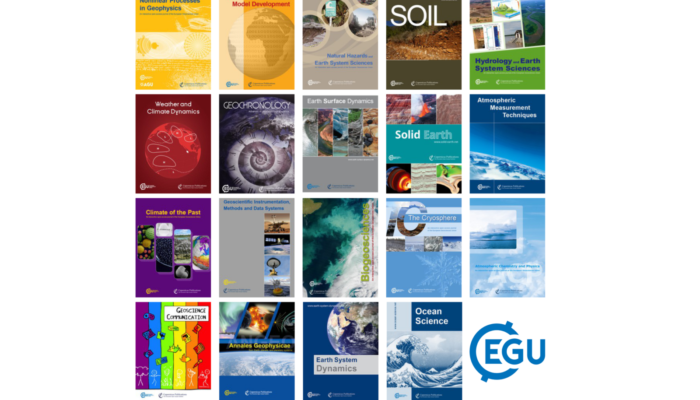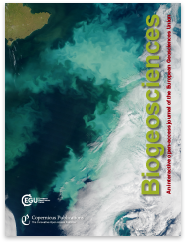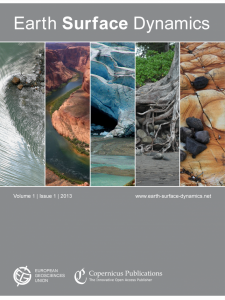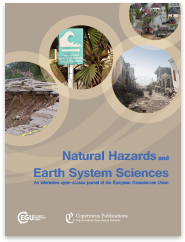
Each month we feature specific Divisions of EGU and during the monthly GeoRoundup we will be putting the journals that publish science from those Divisions at the top of the Highlights roundup. For December, the Divisions we are featuring are: Cryospheric Sciences (CR), Soil System Sciences (SSS) and Tectonics and Structural Geology (TS). They are served by the journals: Geoscientific Model Development (GMD), The Cryosphere (TC), Solid Earth (SE), Biogeosciences (BG), Earth Surface Dynamics (ESurf), Geoscientific Instrumentation, Methods and Data Systems (GI), Hydrology and Earth System Sciences (HESS), Natural Hazards and Earth System Sciences (NHESS), Nonlinear Processes in Geophysics (NPG) and SOIL.
Featured highlights
 Modeling the marine chromium cycle: new constraints on global-scale processes – 10 December 2021
Modeling the marine chromium cycle: new constraints on global-scale processes – 10 December 2021
Chromium (Cr) is a redox-sensitive element that holds promise as a tracer of ocean oxygenation and biological activity. We here implemented the oxidation states Cr(III) and Cr(VI) in the Bern3D model to investigate the processes that shape the global Cr distribution. We find a Cr ocean residence time of 5–8 kyr and that the benthic source dominates the tracer budget. Further, regional model–data mismatches suggest strong Cr removal in oxygen minimum zones and a spatially variable benthic source.
 Sand mining far outpaces natural supply in a large alluvial river – 1 December 2021
Sand mining far outpaces natural supply in a large alluvial river – 1 December 2021
Unsustainable sand mining poses a threat to the stability of river channels. We use satellite imagery to estimate volumes of material removed from the Mekong River, Cambodia, over the period 2016–2020. We demonstrate that current rates of extraction now exceed previous estimates for the entire Mekong Basin and significantly exceed the volume of sand naturally transported by the river. Our work highlights the importance of satellite imagery in monitoring sand mining activity over large areas.
Natural Hazards and Earth System Sciences:
 An ensemble of state-of-the-art ash dispersion models: towards probabilistic forecasts to increase the resilience of air traffic against volcanic eruptions – 6 December 2021
An ensemble of state-of-the-art ash dispersion models: towards probabilistic forecasts to increase the resilience of air traffic against volcanic eruptions – 6 December 2021
Past volcanic eruptions that spread out ash over large areas, like Eyjafjallajökull in 2010, forced the cancellation of thousands of flights and had huge economic consequences. In this article, an international team in the H2020 EU-funded EUNADICS-AV project has designed a probabilistic model approach to quantify ash concentrations. This approach is evaluated against measurements, and its potential use to mitigate the impact of future large-scale eruptions is discussed.
Other highlights
Atmospheric Chemistry and Physics:
Ambient aerosol properties in the remote atmosphere from global-scale in situ measurements – 15 December 2021
Statistical characteristics of extreme daily precipitation during 1501 BCE–1849 CE in the Community Earth System Model – 13 December 2021
Drifting dynamics of the bluebottle (Physalia physalis) – 3 December 2021
Interannual variability in contributions of the Equatorial Undercurrent (EUC) to Peruvian upwelling source water – 8 December 2021




